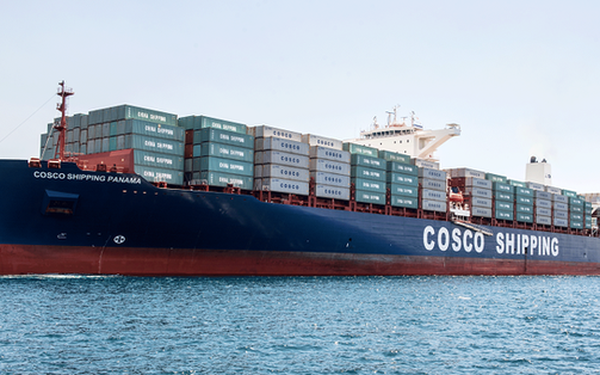Vietnam needs to pay attention to the ‘post-Covid sequel’ of the economy
Illustration.
Tim Evans, General Director of HSBC Vietnam, recently shared 6 major global trends that are forecast to shape the future of countries. Mr. Evans acknowledged that Vietnam is on a strong recovery path in the context that the country gradually overcomes the Covid-19 pandemic. Thanks to that, we can clearly see the economy moving from a state of resistance to development and growth.
However, for Vietnam to realize its full potential in the coming years, we will need to anticipate a series of major trends in the world, including:
1. Climate change
Climate Change both a challenge and an opportunity for a country like Vietnam. As a country with a long coastline with a population of nearly 100 million and one of the world’s largest rice exporters, the prospect of rising sea levels and crop failure as the earth warms is a threat. for the well-being and prosperity of society.
The Asian region, especially the Mekong Delta region, is currently at the forefront of climate change. If we do not act aggressively, by 2050, Asia could face the risk of GDP loss from $2.8 trillion to $4.7 trillion, accounting for more than two-thirds of GDP loss worldwide. demand due to climate change. Specifically, the World Bank warns that Vietnam is one of the five countries most severely affected by climate change. The negative impact of climate change will reduce Vietnam’s national income by 3.5% of GDP by 2050.

Tim Evans, General Director of HSBC Vietnam.
Building a climate-friendly, low-carbon economy and society will require global capital, initiative and commitment to shared goals. Although responding to climate change is a big challenge for us, it also comes with a big opportunity. Sectors such as information technology, biomedicine, new materials and new energy are becoming new, more sustainable drivers of economic growth.
Vietnam will need to make more efforts to reduce its dependence on coal as a source of electricity generation and export. Coal power currently accounts for about one-third of the country’s electricity production. The government recently pledged to reduce the share of coal power system-wide to less than 10% by 2045 and develop the renewable energy sector to increase its share to more than 50% from the current 12%.
2. Digitization
The pandemic has accelerated the transition to an uninterrupted digital society and has stimulated changes in consumer behavior that are not only transient, but are likely to bring significant consequences. to long-term impact.
Vietnamese unicorns such as VNG, MoMo and VNPay are all competitive in the international arena
The wave of digital transformation will continue to drive the level of technology application in industries, especially teleworking, healthcare, education, entertainment and financial services, in addition to reducing transaction costs, support participation in global value chains and improve market entry and access.
One of the major effects of the digital revolution is leveling the playing field globally, allowing countries like Vietnam to compete with more advanced economies. Businesses like VNG, MoMo and VNPay, the unicorns of Vietnam, are all able to compete in the international arena. If we are to continue that successful streak, Vietnam needs to continue to invest in education and accessibility to build a thriving digital ecosystem that fosters innovation.
In the context of digital transformation, information security and privacy are issues that need attention, especially when the virtual universe (metaverse) is growing and growing. We need to work together regionally and globally to deliver a unified data policy and direction.
3. Vaccination equality
Covid-19 is a reminder that the pandemic spares no one. Only when every country, every community gets a vaccine equally quickly and fully, can we return to normal life and achieve economic recovery on a global scale.
Vietnam is a shining example in this regard. Nearly 80% of the population has been vaccinated with at least 2 doses of Covid-19 vaccine, one of the countries with the highest vaccine coverage rate in the world. The Ministry of Health has set a target to complete the vaccination campaign for children aged 5 to 11 in the second quarter of this year. This must be said to be an important achievement of Vietnam if considering the context of 12 months ago. And we can share our expertise and experience to help our neighbors achieve herd immunity. Only when they achieve vaccine coverage like ours can Southeast Asia maximize its recovery. For example, Thailand’s rate is currently quite high and this is the departure point for many tourists who want to visit Vietnam.
We must strengthen global cooperation in research, development, production, raw material supply, distribution, transportation, storage, intellectual property exemption in the issue of vaccines to help countries Countries are struggling to compete with rich countries for vaccines and medical supplies at an appropriate cost.
4. Trade
Covid-19 continues to disrupt global supply chains, but commercial activities remain the shortest and most direct route to economic growth.
Global trade has recovered to pre-pandemic levels and we expect trade activities to continue to normalize as the Covid-19 pandemic wanes even as interest rate hikes take a toll. up consumption.
Up to now, Vietnam has joined 15 free trade agreements (FTAs) of which the most recent is the Regional Comprehensive Economic Partnership (RCEP) which has officially taken effect since the beginning of this year. The country has become one of the most open economies in the world. These FTAs are expected to play an important role in promoting Vietnam’s economic development this year. Since March 15, Vietnam has fully opened up to international travel and tourism, and the Vietnamese government wants to ensure the country regains its pre-pandemic growth rate. This strategic goal can be achieved with the help of FTAs as well as bilateral agreements signed by Vietnam.
These agreements will obviously open up many opportunities for Vietnamese businesses and come with challenges as the country will need to carry out more domestic reforms to maintain its competitive position. Besides, Vietnam will need to continue working with other Asian countries to facilitate investment flows in the region as well as remove non-tax barriers so that the whole region can maximize commercial potential.
5. Geopolitics
The conflict in Ukraine and geopolitical tensions elsewhere in the world will continue to create unwanted uncertainties in the global economy. In the context of international turmoil, Vietnam’s open attitude and consistent stance on settling international disputes by peaceful means on the basis of international law is a respectable opinion. .
Normally, every time there is instability, countries will tend to shrink and turn inward, which is natural, but the big problems of the whole world such as climate change, epidemics and inflation can only be resolved in the spirit of extensive cooperation.
The success stories of each economy, especially in Asia, are written on the material of interconnected relationships. The foundation for the region’s shared prosperity is a spirit of cooperation for mutual success. Any effort or action that deviates from this spirit will inevitably lead to a decline in the economic and social well-being of the entire region. We need to understand that beyond narrow strategic interests, isolationism only makes the global challenges we face more difficult.
6. Inequality and inclusive recovery
The impact of the pandemic is immense. Even when we have recovered, the “post-Covid sequel” is still there. That’s inequality and debt growing together. It is the poorest and most vulnerable communities that are hardest hit by Covid-19, millions of people pushed into poverty and deepening inequality.
The Asian Development Bank (ADB) estimates that the pandemic has forced an estimated 75-80 million people in Asia into extreme poverty since 2020. Progress in hunger eradication and improvement of health and education conditions has also been hampered. thwarts, despite the significant progress that has been made in the past on these activities across the region, although the results have not been uniformly distributed.
We need to quickly recognize and address the significant impacts of Covid-19 on poverty and inequality. The urgent issue now is that low-income developing countries need a vaccine and the support they need to recover. This is also an opportunity to build community resilience to mitigate the impact of natural disasters as well as prevent other crises in the future. This could mean increasing investment in health and education, creating a fair and competitive labor market, and improving access to financial services and technology.
Following Economic Life
at Blogtuan.info – Source: cafebiz.vn – Read the original article here



